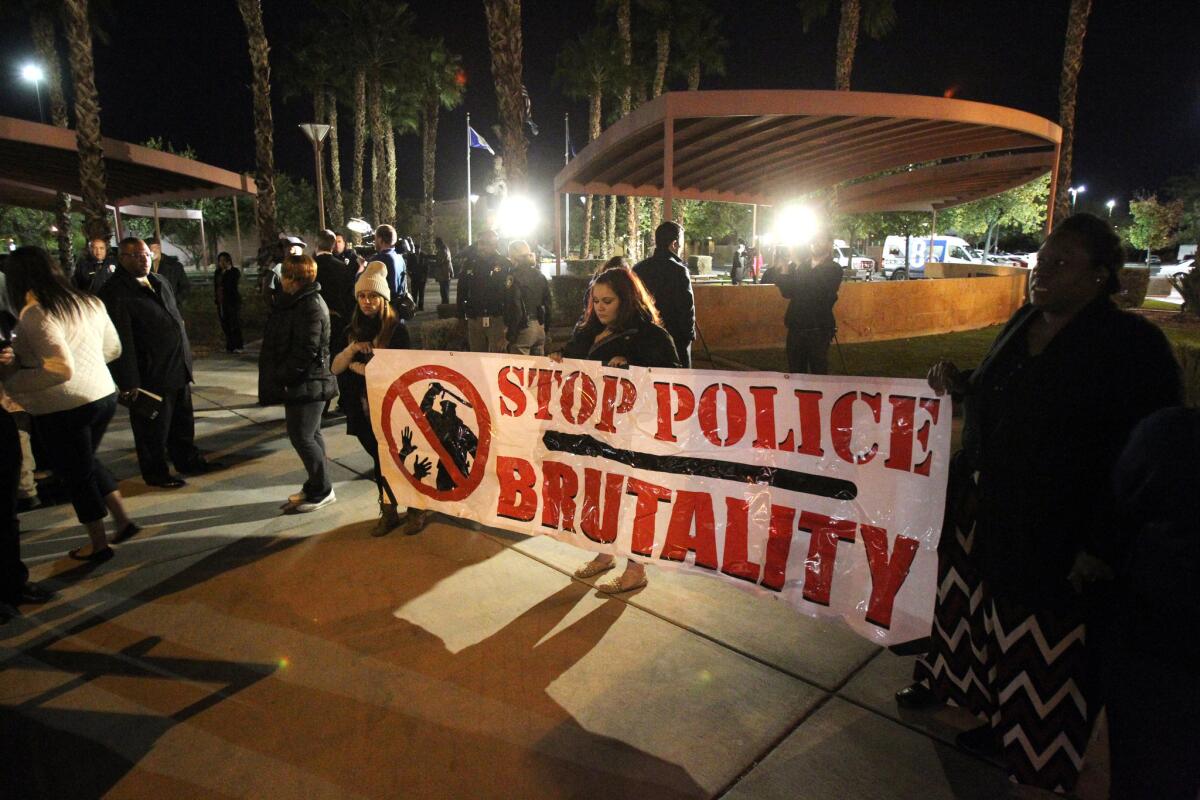Ferguson unrest spurs worldwide observations about racism in U.S.

For China’s state media, the violence in Ferguson, Mo., was an opportunity to point out the type of rights abuses the United States and its Western allies often accuse Beijing authorities of committing.
In Russia, which faces accusations of violating international law with its aggression in eastern Ukraine, a senior Foreign Ministry official blamed the unrest in the St. Louis suburb on racial discrimination.
The images and stories emanating from the rioting and protests that consumed Ferguson and other U.S. cities after a grand jury decision not to prosecute a white police officer for shooting an unarmed young black man have been headline news worldwide, but largely without judgmental commentary on the origins of the social discord.
While the violent outbursts in Ferguson, in New York, in Washington and in Los Angeles expressed what President Obama called the “deep distrust” that exists between police and minority communities, Western foreign media mostly focused on the facts -- 29 arrested, incidents of torching and looting and limited physical injury -- without suggesting the night of fury was emblematic of U.S. culture.
There were exceptions, however.
Britain’s Financial Times cited Obama and other U.S. leaders who urged calm and reconciliation in calling the images of violence Monday night “a painful reminder of the enduring racial and economic tensions that have flared up not only in Ferguson, but dozens of other communities in recent years.”
In Geneva, the United Nations human rights commissioner, Zeid Raad Hussein, said he couldn’t judge the St. Louis County grand jury’s decision without seeing the evidence that brought the nine whites and three blacks to conclude that Police Officer Darren Wilson hadn’t committed criminal offenses for which he should be prosecuted.
Hussein expressed concern, though, over the disproportionate number of blacks killed in encounters with police and serving time in U.S. prisons, and pointed to “a deep and festering lack of confidence in the fairness of the justice and law enforcement systems” in the United States.
On Aug. 9, Wilson shot and killed 18-year-old Michael Brown after stopping him for jaywalking. The incident set off months of protest and accusations of racial profiling and mistreatment of minorities in communities like Ferguson, a suburb that was predominantly white three decades ago and which today is 85% black.
“Racial discrimination, racial and ethnic tensions are major challenges to the American democracy, to stability and integrity of the American society,” Russian Foreign Ministry human rights envoy Konstantin Dolgov told state-run television. “We may only hope that U.S. authorities seriously deal with those issues and other serious challenges in the human rights field in their own country and stop what they have been doing all along recently — playing an aggressive mentor lecturing other countries about how to meet human rights standards.”
China’s New China News Agency neglected to mention the race of either Wilson or Brown, focusing instead on police interaction with the media swarming the tense Missouri town.
“Police were seen interrupting media interviews around the site, pushing and shoving journalists who did not move fast enough to escape their lines,” the report said.
China usually shies away from commentary on alleged human rights abuses, as it considers the subject a matter of domestic policy. Its media reports on Ferguson have been few and those published limited to a factual presentation.
Japan’s NHK television gave prominent coverage to the Ferguson unrest, showing protesters hurling stones and bottles and vandalizing police cars.
In Munich, Germany’s Sueddeutsche Zeitung headlined its report “Why the Death of Michael Brown Goes Unpunished.” It recounted what it called a brief investigation in a law enforcement culture of immunity and the widespread criticism of the state prosecutor’s provision of evidence to the grand jury.
Follow @cjwilliamslat for the latest international news 24/7
More to Read
Sign up for Essential California
The most important California stories and recommendations in your inbox every morning.
You may occasionally receive promotional content from the Los Angeles Times.











